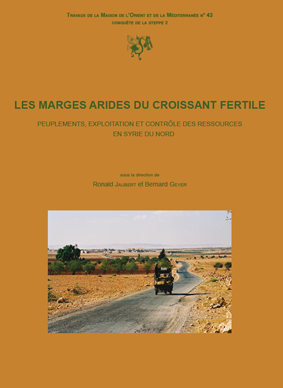Negotiating Conflicts of Interest Related to Water Management
Annual Call for Projects 2001
Summary
The program aims to develop and implement processes of negotiation in water-scarce contexts where conflicting interests lead to reduced water use efficiency.
Its specific objectives are:
• To identify and analyse conflicts of interest and secondary effects induced by water resource development programs and management systems;
• To develop tools and methods aimed at conciliating divergent objectives related to the utilisation of water and reducing secondary undesirable effects;
• To develop training material on the analysis of conflicts of interest and negotiation processes for postgraduate programs focused on sustainable resource management;
• To establish a network of university departments, international and non-governmental organisations operating in the field of sustainable development.
There is a large potential for improving the efficiency of water use. It is indeed widely recognized that water, even in areas where it is a scarce resource, is generally mismanaged, particularly in the agriculture sector which uses up to 80% of water withdrawals in developing countries. Furthermore, secondary effects can significantly reduce the benefits of large and small water resource development schemes. Irrigation, for example, often causes environmental, social and sanitary problems.
In many cases the current low efficiency results from conflicts of interest at various levels. Water scarce situations are characterized, for example, by growing conflicts between those who benefit from water resource developments and those for whom these developments are a threat to their access to water. Conciliating these conflicts is central to improving the sustainability and efficiency of water use. The balancing of social, economic and environmental objectives is largely dependent on the context in which water resource developments are made and requires the implementation of negotiation processes involving the various users.
In recent years decision-making tools have been developed and permit a precise assessment of water resources and constraints affecting their utilization. These tools are generally used in isolation from one another in sectoral approaches. For example, human health is rarely taken into account in irrigation projects. This research project aims at integrating the various dimensions of water management in development-oriented approaches.
The project is based on three case studies where actual and potential water utilization conflicts limit the efficiency of water use. The three case studies are located in southern Niger, the state of Gujarat, India, and central Syria.
The grant provided by the GIAN for this project totals SFr 510,080
Project Team
Prof. Ronald Jaubert , Coordinator, Graduate Institute of Development Studies (GIDS) .
Dr. Marika Bakonyi , Principal Member, University Centre of Human Ecology and Environmental Sciences (CUEH) , University of Geneva (Unige) .
Dr. Robert Bos , Principal Member, Water, Sanitation and Health , World Health Organization (WHO) .
Prof. Regis Caloz , Principal Member, Swiss Federal Institute of Technology in Lausanne (EPFL) .
Dr. Ewa Mariéthoz , Principal Member, University Centre of Human Ecology and Environmental Sciences (CUEH) , University of Geneva (Unige) .
Dr. David Nygaard , Principal Member, Rural Development , Aga Khan Development Network (AKDN) .
Ms Marie Thorndahl , Principal Member, Graduate Institute of Development Studies (GIDS) .
Mr Olivier Walther , Principal Member, Institute of geography (IGUL) , Faculty of Earth Sciences and Environment (GSE) , University of Lausanne .
Prof. Jörg Winistorfer , Principal Member, Institute of geography (IGUL) , Faculty of Earth Sciences and Environment (GSE) , University of Lausanne .
Prof. François Zwalhen , Principal Member, - .
Related Links
> Water , web site containing the details of the Research Output.
> IGUL-UNIL , Institute of Geography, University of Lausanne.
Related News
-
L’eau: source d'une fructueuse collaboration internationale - 15.11.05
Le travail en réseau est une formidable occasion de comparer les différentes solutions à un problème d’envergure... et...
> more
Related Conferences
Conference on Access to Water: Global Crisis, Local Crises? – 31 January 2007
The GIAN project "Negotiating Conflicts of Interest Related to Water Management", coordinated by Professor Ronald...
> more
Research Output
|
Water - Conflicts of Interest in Regions of Scarcity
(available in French only) > more |
|
Populations, Exploitation and Resource Control in Northern Syria
(available in French only) > more |
|
Ground Water Regulation and Water Crisis Rhetoric: Syria as a Case Study, in: Fresh Water and International Economic Law
> more |
|
Exploitation of Subsurface Waters from Arid Margins of Syria: Deterioration or Transformation?
> more |


